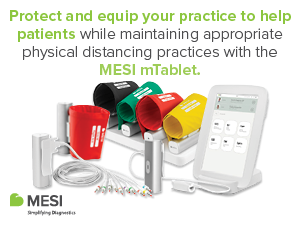-
PRODUCTS
- Anaesthesia & Respiratory
- Baby
- Casting
- Continence Care
-
Diagnostic
- See all Diagnostic
- Accessories
- Bladder Scanner
- Blood Testing
- Breathalyzer
- Cholesterol Testing
- Covid Testing
- Dermatoscope
- Diabetes Monitoring
- Drug Testing
- Endoscopy
- Eye Ear Nose & Throat
- Height Measures and Charts
- INR
- Jars and Containers
- Medical and Surgical Instruments
- Parts and Accessories
- Scales
- Testing
- Urinalysis
- Womens Health
- Ear Irrigation
-
Equipment
- See all Equipment
- "Miscelllaneous, Parts and Accessories"
- Beds
- Blood Collection Chair
- Bracket & Dispensers
- Carts & Trolleys
- Cryosurgery
- Electrosurgery
- Examination Couches & Tables
- Fridge & Freezers
- IV Stands
- Laundry & Cleaning Trolleys
- Miscellaneous
- Play Panels
- Privacy Screens and Curtains
- Stools and Step Ups
- Tens
- Transferring & Patient Handling
- Waste Disposal
- X-Ray Viewers
-
General Consumables
- See all General Consumables
- "Couch Rolls, Protectors & Underpads"
- "Registers, Records and Certificates"
- Bags Assorted
- Batteries
- Blankets
- Blankets and Warmers
- Bracket
- Child Rewards
- Containers
- Cups
- Dr Bags
- Ear Piercing
- Episcope
- Feminine Hygiene
- First Aid and Trauma
- Gels and Lubricants
- Identification
- Linen
- Marker
- Miscellaneous
- Ostomy
- Paper and Printing Consumables
- Paper Products
- Parts and Accessories
- Personal Care
- Pill Cutters and Crushers
- Ultrasound Gel
- Wooden Applicators
- Gloves
- Hand & Body Hygiene
-
Infection Prevention & Control
- See all Infection Prevention & Control
- Absorbent Powder
- Bedpans & Urinals
- Caps
- Containers
- Dispensers
- Eye Protection
- Face Masks
- Hand Hygiene
- Miscellaneous
- Parts & Accessories
- Protective Apparel
- Scrubs
- Spill Kit
- Surface Cleansers & Wipes
- Surgical Packs & Drapes
- Toileting & Waste Disposal
- Tray Liners
- Wipes and Skin Protection
- Intravenous Infusion & Administration
-
Medical & Surgical Instruments
- See all Medical & Surgical Instruments
- Biopsy Punch
- Chiropody Pliers & Podiatry
- Cleaning and Protection
- Curettes
- Dental Syringe
- Dilator
- Ear Irrigation
- Forceps
- Hammer
- Male Health
- Marker
- Miscellaneous
- Nasal Speculum
- Needle Holder
- Pack
- Probe
- Retractor
- Ring Cutter
- Scalpel Handles & Blades
- Scissors
- Skin Hook
- Sucker
- Tuning Forks
- Uterine Curettes & Sounds
- Medical Lighting
- Medical Lighting
- Needles & Syringes
- Nutritional Support
- Oral Care
- Patient Monitoring
-
Pharmaceuticals
- See all Pharmaceuticals
- Alimentary
- Anaesthetic
- Analgesia
- Antihistamines
- Cardiovascular
- Central Nervous System
- Creams and Ointments
- Endocrine & Metabolic
- Eye Ear Nose & Throat
- Infections & Infestations
- Miscellaneous
- Musculoskeletal
- Nutrition
- Ointment Products
- Other
- Register
- Respiratory
- Skin
- Solutions
- Rehabilitation & Mobility
- Skin Care
- Sports & Recovery
-
Sterilisation
- See all Sterilisation
- Autoclaves
- Biological Indicators and incubators
- Chemical Indicator Tapes
- Chemical Indicators and Integrators
- Cleansing Solutions & Detergents
- Instrument Protector
- Labels
- Marker
- Paper and Printing Consumables
- Parts & Accessories
- Record Keeping Supplies
- Steam Indicator Sheets and Tests
- Sterilisation Pouches & Rolls
- Towels and Cloths
- Trays and Bowls
- Ultrasonic Cleaners
- Water
- Wraps
- Sutures & Skin Closures
- Urology
- Vaccines
- Wound Care
- Wound Management
- News & Updates
What Is Obesity?
Obesity is a chronic, relapsing, inflammatory disease that requires lifelong medical care.1-3An adult with a BMI >30 is considered to have obesity.4,5 Obesity affects almost every organ in your body and increases your risk of developing serious health problems, including type 2 diabetes, high blood pressure, stroke, liver and kidney disease, sleep apnoea, and osteoarthritis.6-8
![]()
The Facts About Obesity. Download PDF
Calculate Your Body Mass Index
BMI calculates the relationship between weight and height. It can measure obesity and indicate risk for developing weight-related health problems. 4,6
Why Diet and Exercise Don’t Always
Work
Obesity is influenced by many factors.1,4,9,10 Changes in environment, stress levels, sleep, or diet can trigger your body to store fat and gain weight.4,5,10,11 Diet and exercise can lead to weight loss, but it can be hard to keep it!.2,11,12 Losing weight through diet and exercise can trigger your body to increase hunger, decrease feelings of fullness, and slow down metabolism – like your body is fighting weight loss.2,11,14
![]()
Why is Weight Loss so Hard to Maintain? Download PDF
Want To Know More
Ready to take the next step in your weight loss journey? Read our resource on talking to your doctor about weight loss surgery or visit our Weight Loss Support page for more options.
Discussing Weight Loss Surgery With Your Doctor. Download PDF
Why Is Weight Loss Surgery Effective?
Ready to know more about weight loss surgery? Our Weight Loss Surgery page can answer some of your questions and help you to understand if weight loss surgery could be right for you. You should always talk to your doctor when considering surgery.
Weight Loss Surgery as an Effective Treatment for Obesity. Download PDF
References
1. Bray GA, et al. Obes Rev. 2017;18(7):715-723.
2. Papamargaritis D, le Roux CW. Nutrients. 2021;13(3):762.
3. Royal Australian College of General Practitioners. Obesity prevention and management position statement. February 2019. Available: https://www.racgp.org.au/FSDEDEV/media/documents/RACGP/Position%20statements Obesity-prevention-and-management.pdf (accessed May 2021).
4. National Health and Medical Research Council. Clinical practice guidelines for the management of overweight and obesity in adults, adolescents and children in Australia. 2013. Melbourne: National Health and Medical Research Council.
5. Schwartz MW, et al. Endocr Rev. 2017;38(4):267-296.
6. Bray GA, et al. Endocr Rev. 2018;39(2):79-132.
7. Poirier P, et al. Circulation. 2006;113(6):898-918.
8. Garvey WT, et al. Endocr Pract. 2016;22 Suppl 3:1-203.
9. Caterson ID, et al. Diabetes Obes Metab. 2019;21(8):1914-1924.
10. Das B, Khan OA. Int J Surg. 2019;68:114-116.
11. Sumithran P, Proietto J. Clin Sci (Lond). 2013;124(4):231-241.
12. Al-Najim W, et al. Physiol Rev. 2018;98(3):1113-1141.
13. Pucci A, Batterham RL. J Endocrinol Invest. 2019;42(2):117-128.
14. Fothergill E, et al. Obesity (Silver Spring). 2016;24(8):1612-1619.
Newsletter
Please enter your email address to subscribe to our newsletters.



